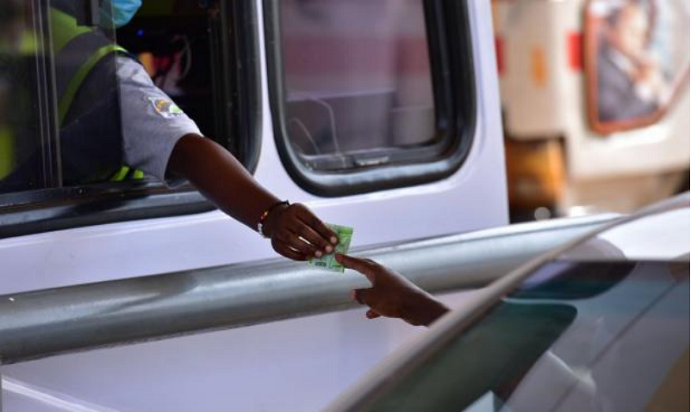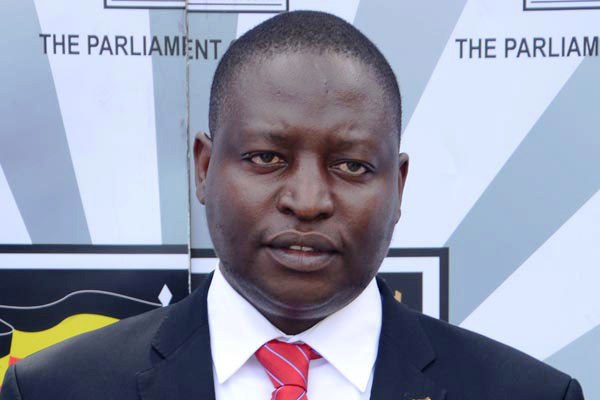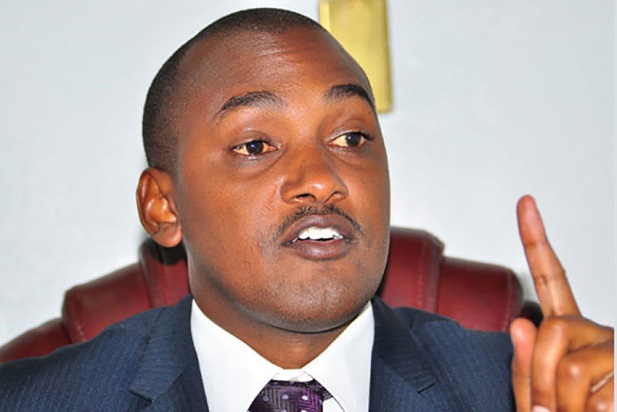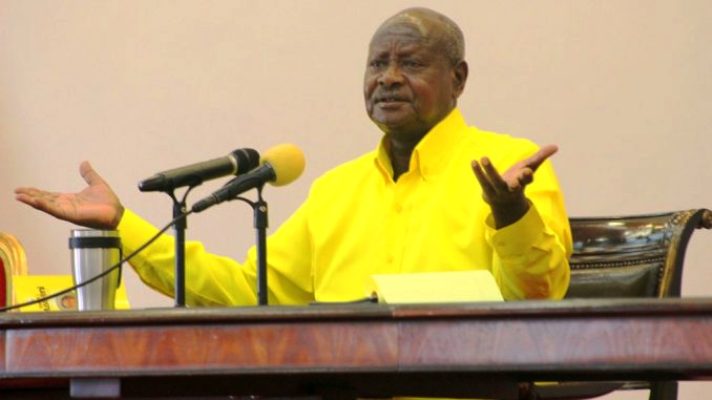A tolling officer receives cash from a motorist at the tolling plaza
The government is yet to meet its monthly collection target of shillings 7.8 billion from tolling the Kampala-Entebbe Expressway. Uganda National Roads Authority-UNRA only collected close to Shillings 20 billion as toll fees on the expressway between January 8, 2022, when tolling commenced, and July 31, 2022.
UNRA contracted the French firm Egis to collect the toll fees and maintain the road on behalf of the authority.
Motorists pay between Shillings 3,000 and Shillings 18,000 per trip on the expressway, which connects from Kampala Northern bypass at Busega and joins the Old Entebbe road at Mpala.
The collections are meant to service the US$350 million loan the government acquired from the Exim Bank of China to construct the 51.4-kilometer expressway.
According to the loan agreement, the repayment schedule runs from July 21, 2019, to January 21, 2032.
In the 13-year repayment period, the government plans to pay $26.8 million (about Shs 95 billion) every year.
This means that the government should collect at least Shilling 7.8 billion monthly to meet the loan obligation.
But the monthly collections are still below the target. The government should have collected at least Shillings 54.6 billion in the last seven months.
But the latest figures from UNRA show a shortfall of Shillings 35.1 billion since it only collected Shillings 19.5 billion from January to July this year.
Joy Nabasa, the public relations of Egis, says the firm collected Shillings 19, 492,474,800 from 4,103, 806 passages between January 8 and July 31, 2022.
In the seven months, the firm collected on average Shillings 2.7 billion from 586,258 passages per month. Implying that there were 20,116 passages per day.
Nabasa explained that during the first seven months, each of the three toll gates located in Mpala, Busega, and Kajjansi recorded an average of 6,705 passages daily.
Allan Ssempebwa, the communications officer at UNRA, says the ministry of finance is in charge of the loan repayment modalities since the toll fees are collected and deposited in the Consolidated Fund.
He however says an average of 20,000 passages made daily has surpassed the projected daily average of 13,000 passages.
These include incoming and outgoing air passengers, taxi operators, visitors, and Entebbe residents.
Ssempebwa says the number of passages has been increasing from 480,234 passages in January to 574,629 in February, 594,124 in March, 557,066 in April, and 627,479 in May 2022. The numbers decreased in June and July to 590,582 and 594,775 passages respectively.
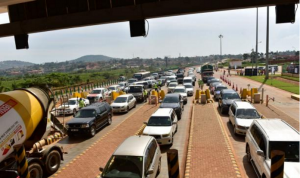
According to Nabasa, May recorded the highest amount of revenue collected, which is Shillings 29billion from 627,479 passages, followed by March with shillings of 2.9billion from 631,861 passages. In June, Ssempebwa said that the ever-increasing traffic on the road is an indicator that it is not a “white elephant” as perceived by some sections of the public when the government announced plans to toll the expressway.
“The more passages, the more money we will collect to repay the loan, operate and maintain the road,” he said. Taxi operators led by Peter Kavuma and Yasin Kyeyune of Fly Express Travelers Uganda Ltd laud Egis for making it easier for card users to pay the toll fees upfront via mobile money.
Cardholders pay per week or monthly at discounted prices.
The motorists however decry the lack of streetlights along the expressway.
Kyeyune, who represents Kitooro Central and Kiwafu West at Entebbe Municipal Council, says it is risky to use the expressway at night, even though the number of thefts and murders has reduced in the last two years.
He says Fly Express Travelers Uganda Ltd has 60 vehicles, which make an average of 4 trips a day, making them one of the frequent users of the toll road.
-URN


